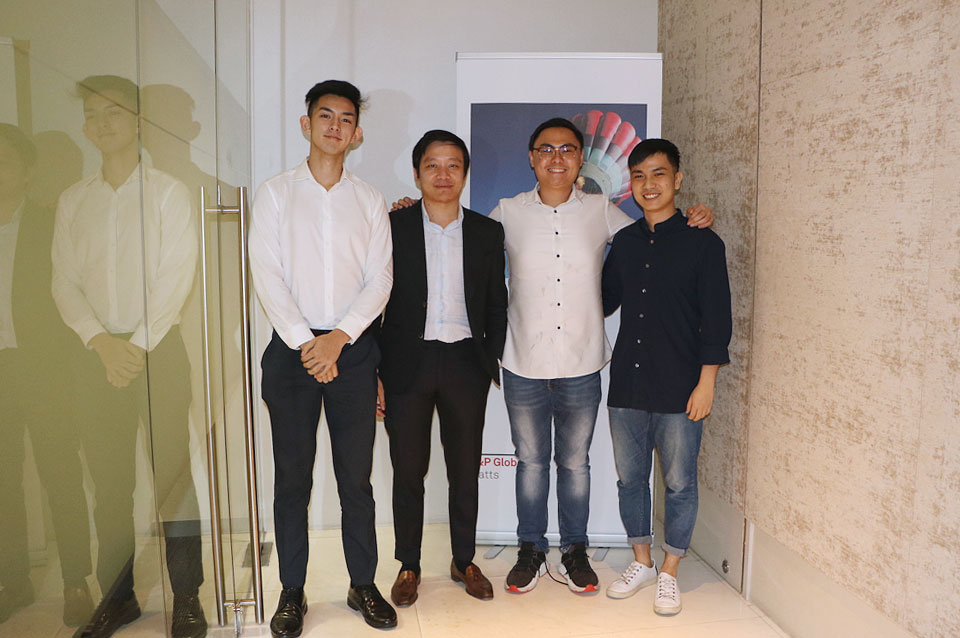Like many business school students, Benjamin did not exactly know what he wanted to do during his early years in NUS. After exploring different roles through internships and participating in various case competitions, Benjamin learnt more about himself and what he wanted. Upon graduation in 2013, Benjamin worked at Bloomberg and S&P Global Market Intelligence, and is currently at Bureau van Dijk – A Moody’s Analytics Company.

Alumni Spotlight Stories: Benjamin Ho, Bureau van Dijk – A Moody’s Analytics Company

Q: Why are your experiences so varied? How did your internship experiences at different roles (from compliance to hedge fund) contributed to what you are doing now?
To be honest, I didn’t really plan or figure out what I wanted to do during my first 2 years in Business School, which explains my diverse experiences. However, I would not say those experiences are not useful as I found out about my weaknesses and developed my strengths through each internship.
For example, despite being in a regional sales role, I didn’t used to articulate well in my university days. During classes, I had to constantly repeat what I wanted to say in my head before finally plucking the courage to participate in class. Through the different roles I took up, I realised that soft skills are essential traits one should have regardless of the industry or role one is in. Accordingly, I began making consistent efforts to develop myself in this aspect, learning how to manage and communicate with people effectively, which has greatly helped my career progression.
Q: You had the chance to work overseas in Hong Kong. How was it like working there?
When S&P Global offered me a role, I was attracted by the job scope and the opportunity to work in Hong Kong. I understood that this might be a once-in-a-lifetime opportunity and there was practically no downside to having this new experience. The more we travel, the more we can leverage on the opportunities unique to each foreign country. A lot of my personal development came from Hong Kong because I was able to experience a different culture, which forced me to adapt and enabled me to gain greater exposure as compared to staying in Singapore.
Case competitions provide opportunities for students to solve real-life problems
Q: How did you excel in your interviews and what are some tips you have?
As I did not have the privilege of having a mentor to guide me, my experiences mainly came from my past failures and successes.
Firstly, I encourage students to participate in case competitions. They serve as a fantastic way for students to gain exposure to things they might want to explore in the future and to stimulate their problem-solving skills. I still remember when my team almost came in first in a competition on government policy, which I had absolutely no experience in. Case competitions provide opportunities for students to solve real-life problems, and every company wants people who can solve challenges.
Additionally, you must come into the interview prepared and anticipate the questions based on the job itself. Although technical skills are important, they are not the most important thing interviewers look out for. Technical skills can be learned on the job, but the attitude towards learning is what matters the most. I think firms nowadays are always looking for people with drive, people who are motivated, and people who can make a difference.
Apart from that, always try to position yourself in a way which you can bring value to the company. Before the end of your interview, one good tip is to ask extremely intelligent questions to differentiate yourself from the rest.
Q: Do you have any advice for current NUS business students?
Firstly, be extremely motivated, diligent and smart. Always try to see what kind of difference you can make in a company that you want to be a part of. It is always people with the mindset of wanting to make a difference who become successful, regardless of the industry they are in. Motivation makes up for the lack of knowledge and many companies are valuing drive over technical skills. It is important to constantly think and reflect on how you can improve yourself to contribute to the organisation.
Secondly, when deciding on your first job, choose a role that suits you. Find something that aligns with your long-term career aspirations and don’t get blinded by big company names. Sometimes, being a big fish in a small pond is better than being a small fish in a big pond.
The Alumni Spotlight Stories is a weekly series that explores a Bizad alumni’s journey from school to the working world. The story was first published in “Alumni Spotlight Stories: From Student Life to the Peak of your Career” compiled by the NUS Business School Alumni (NUSBSA).


